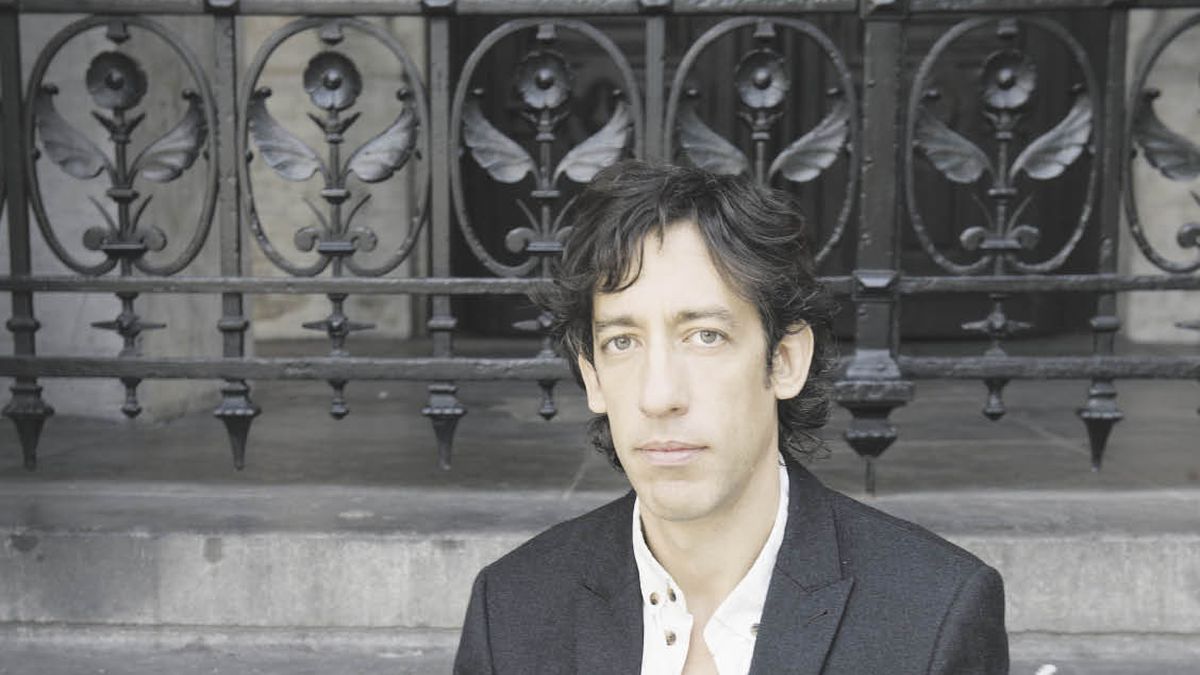Journalist: How did the project of the three films in three cities come about?
Mariano Pensotti: In 2018 I received the invitation from Athens to do something else, but it was very complicated, so we thought of another option. With my creative partner and scenographer Mariana Tirante, we discovered that Athens was full of open-air cinemas with the entire structure but without a roof, which only work in summer. They are beautiful art deco buildings from the 20s or 30s with large gardens, seats and an outdoor screen. We thought of the project for that context and that it had the idea of an audience and follow the lives of these characters when they leave the room. In 2020, together with FIBA, we made the second version in Buenos Aires and last year we filmed the ones in Brussels, the most epic in the midst of a pandemic and without vaccines.
Q.: How are the stories of each city?
MP: They are totally different respecting the same structure and procedure of an audience that enters the room, settles down and after the ellipsis leaves somewhat disturbed. The one in Buenos Aires focuses on an imitator of De la Rúa in the 2001 crisis. The one in Brussels is about some miners who were trapped for several days and the one in Athens tells the story of a very famous beggar in the 1940s who in reality did not she was a beggar but dressed up to fight against the Nazis.
Q.: Why your interest in the 2001 crisis?
MP: I was interested in that period for a long time and it was directly linked to this notion of ceasing to be a spectator to become a protagonist. It was a social and political moment in which people took to the streets and stopped being passive in the face of a very unjust situation. We are also interested in thinking about how it bounces to be a spectator or to be a protagonist.
Q.: The question for the public, do you think that the public is attracted to this kind of questions?
MP: The films are an attempt to get out of the inbred, which perhaps only interests a few of us. They do not tell how the work is done, they are not cryptic. They wonder what happens to that audience in their daily lives when they leave a play. It does not speak of our world. The public of the three films sees a work that we as an audience do not see, and only know through their stories and memories.
Q.: What other reflections appear?
MP: One thinks he knows the theater audience, at least the one in Buenos Aires. We assume that it is urban, middle class, but then we are surprised. When I have works on the bill, I spy on the public at performances and I am fascinated by the extreme heterogeneity, something of that is shown in these films. But it is impossible to aspire to universal interest, that is what Netflix does, they study the market and try to detect what interests as many people as possible. Those of us who make theater or movies aim to tell stories that can move us and the people who are close to us.
Q.: How do you see the post-pandemic performing arts?
MP: There is still a certain level of uncertainty, there were many budget cuts due to the pandemic, outside as well. There is backward programming that is carried over from previous years. I noticed a great need of the public to return to the theater, outside and here. Because it implies going back to the collective experience, for example in Milan we had full performances and people in the talks afterwards, which are sometimes boring formalities and on this occasion people wanted to get into the kitchen of the works
Q.: What can you say about theater production in Buenos Aires?
MP: Here I go to the theater a lot and I always see things that stimulate and surprise me, we do it against a lot of difficulties. The official management is crossed by eternal budget cuts, quite erratic and chaotic planning. Support arises for good projects but in general it is very difficult to see planning, the official theaters do not consider creative projects in the medium term. I’ve never seen him. And part of the problem is that these positions are not competed for. It is a pending subject. The economic support is insufficient depending on the dimension that we want or intend to give it. The volume of theater that is produced here is enormous but the majority held by the makers.
Source: Ambito
David William is a talented author who has made a name for himself in the world of writing. He is a professional author who writes on a wide range of topics, from general interest to opinion news. David is currently working as a writer at 24 hours worlds where he brings his unique perspective and in-depth research to his articles, making them both informative and engaging.




